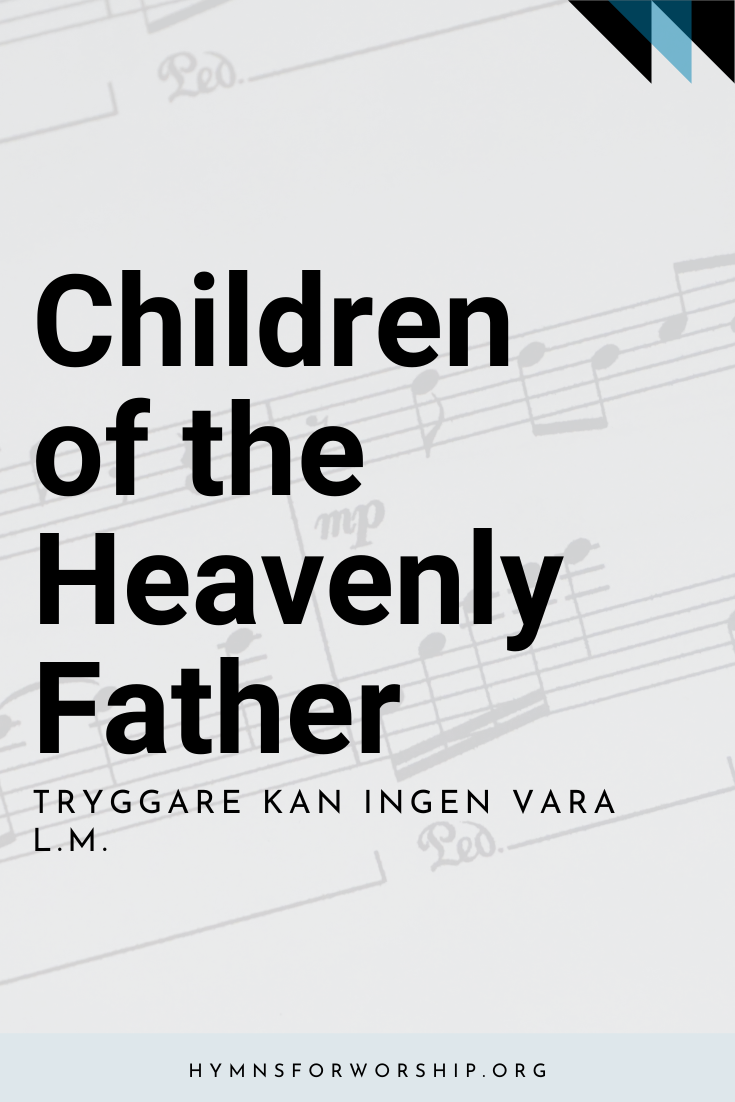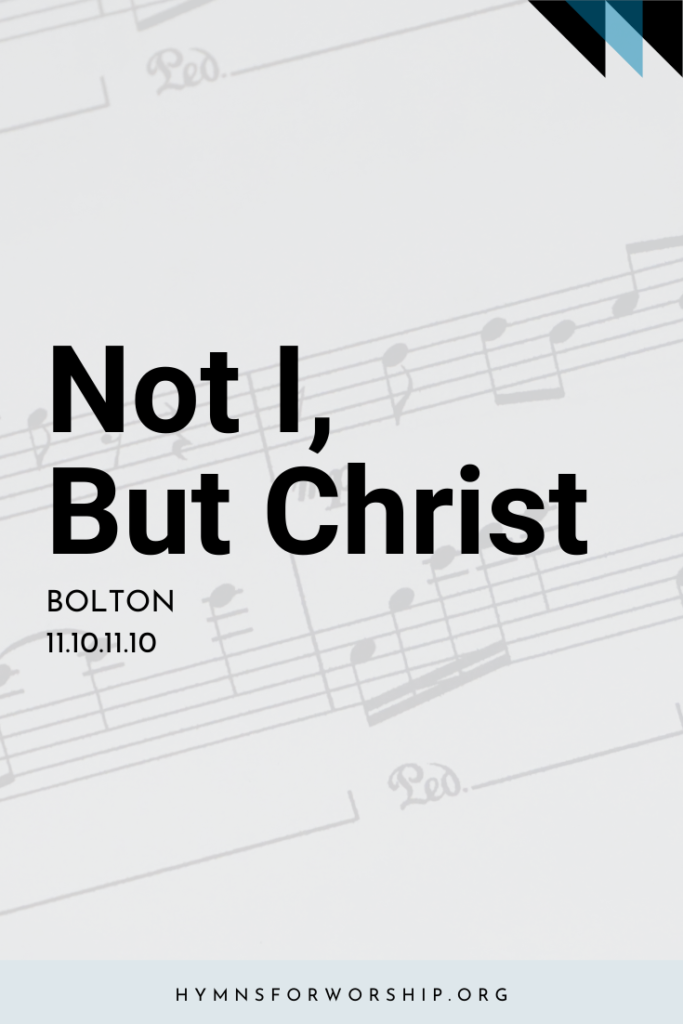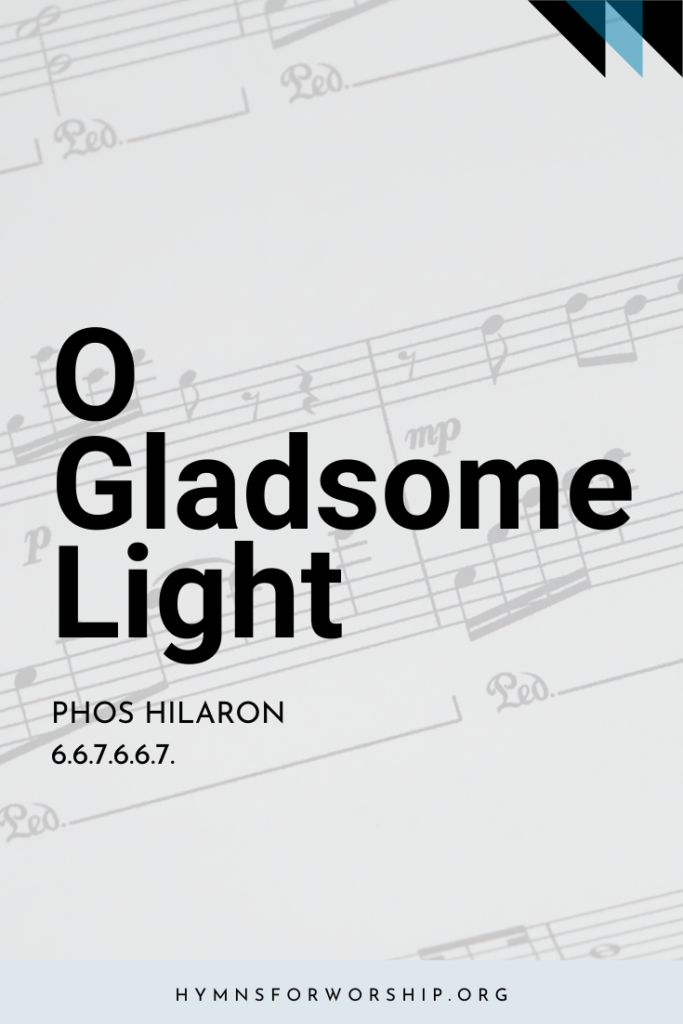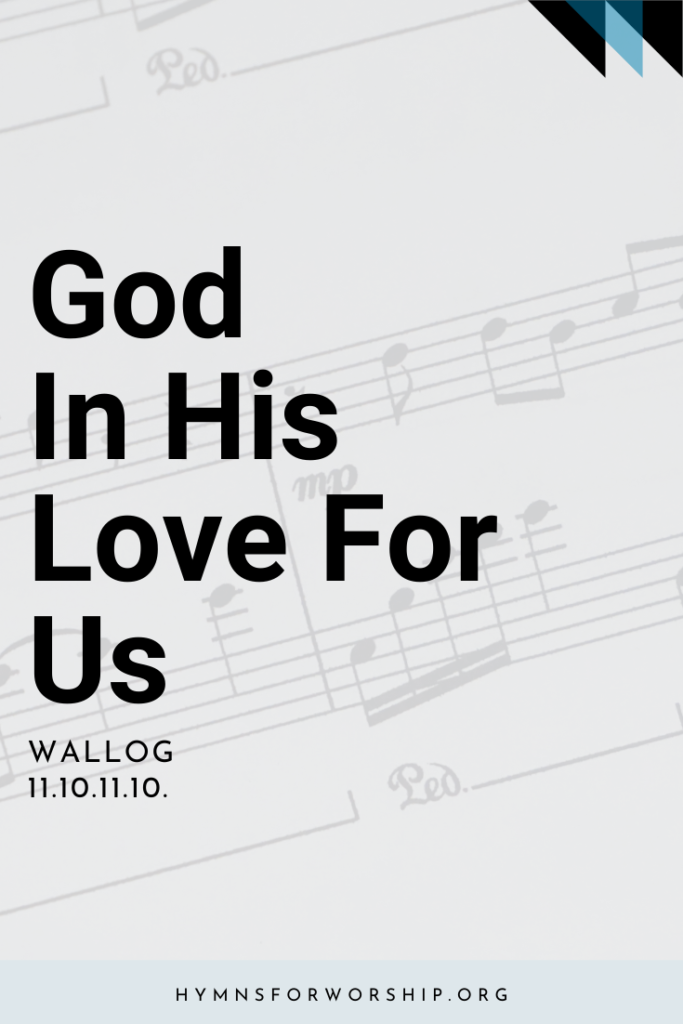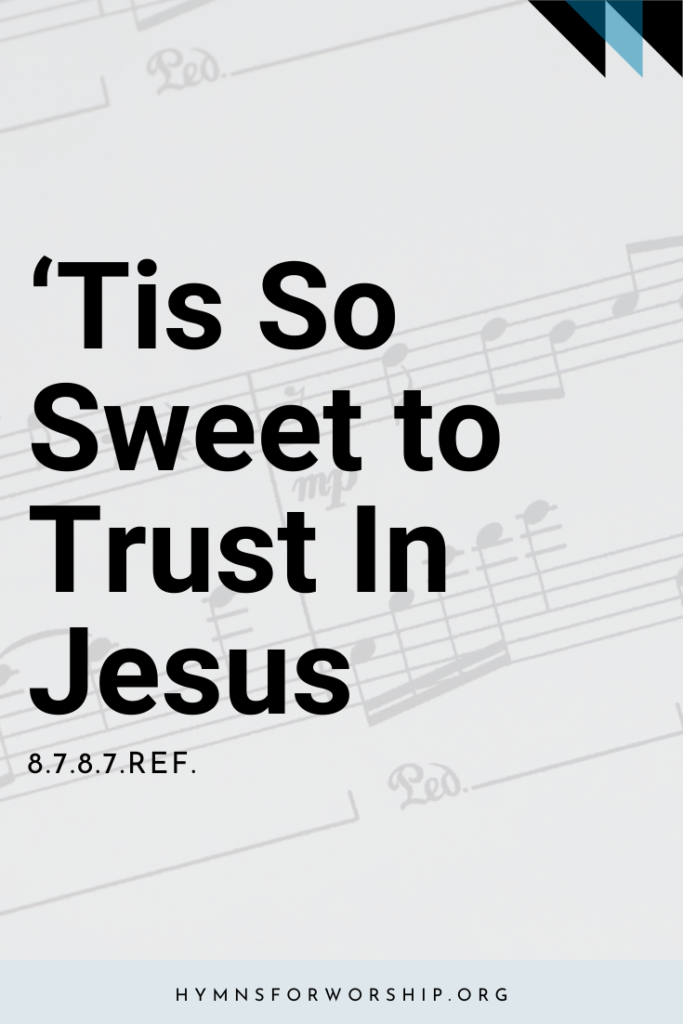GOD THE FATHER >> Faithfulness of God
SDAH 101
Children of the heavenly Father
Safely in His bosom gather;
Nestling bird nor star in heaven
Such a refuge e’er was given.
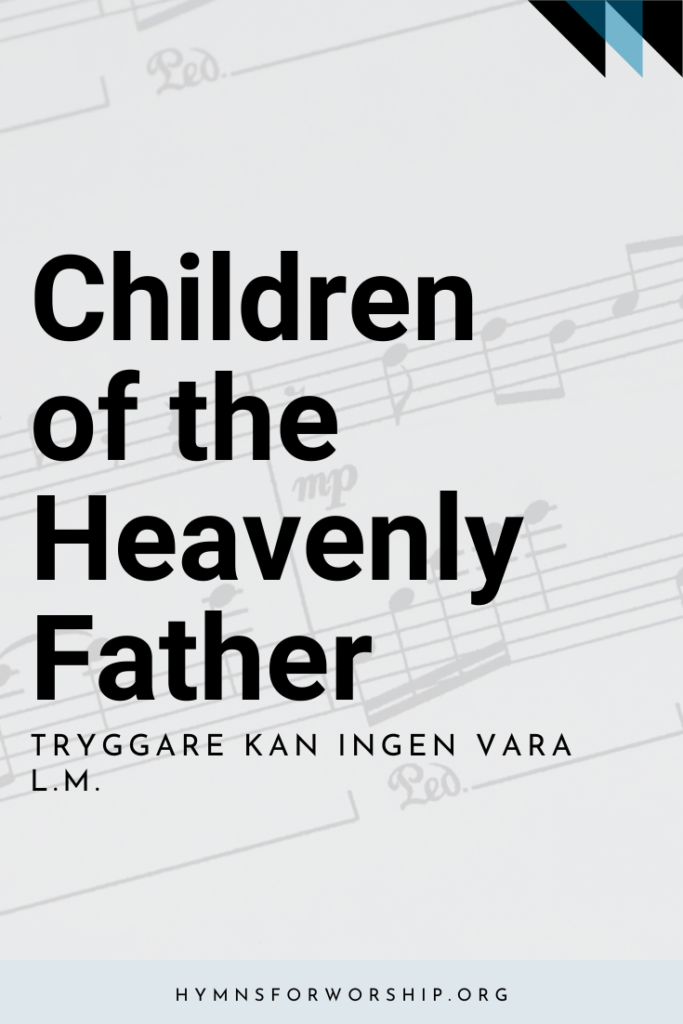

Text
1
Children of the heavenly Father
Safely in His bosom gather;
Nestling bird nor star in heaven
Such a refuge e’er was given.
2
God His own doth tend and nourish,
In His holy love they flourish;
From all evil things He spares them,
In His mighty arms He bears them.
3
Neither life nor death shall ever
From the Lord His children sever;
Unto them His grace He showeth,
And their sorrows all He knoweth.
4
Praise the Lord in joyful numbers,
Your Protector never slumbers;
At the will of your Defender
Every foe-man must surrender.
5
Though He giveth or He taketh,
God His children ne’er forsaketh;
His the loving purpose solely
To preserve them pure and holy.

Hymn Info
Biblical Reference
(a) Ps 103:13 (b) Isa 40:11 (c) Rom 8:38, 39 (d) Ps 121:4 (e) Job 1:21
Author
Carolina Sandell Berg (1832-1903)
Translator
Ernest W. Olson, 1925 (1870-1958)
Year Published
1858
Performance Suggestions
Unison setting SDAH 153
Copyright
Words copyright Board of Publication, Lutheran Church in America. Reprinted by permission.
Hymn Tune
TRYGGARE KAN INGEN VARA
Metrical Number
L.M.
Tune Source
Swedish Folk Melody
Theme
FAITHFULNESS OF GOD
Hymn Score
Piano Accompaniment
Notes
Get to know the hymns a little deeper with the SDA Hymnal Companion. Use our song leader’s notes to engage your congregation in singing with understanding. Even better, involve kids in learning this hymn with our homeschooling materials.
This beautiful, tender hymn about the heavenly Father’s loving concern for His children was written by Carolina Vilhelmina Sandell Berg, known as the “Franny Crosby of Sweden.” Born October 3, 1832, to a Lutheran pastor’s family in Fröderyd, Småland, south Sweden, she was stricken with paralysis at age 12 and declared incurable by the doctors, but later she regained her health. When she was 26, her father drowned as a result of boating accident, while she watched helplessly. Her first 14 hymns were published that same year. Two years later her mother died. It is a tribute to her faith that many of her hymns express an unquestioning confidence in God and His love in spite of all the sorrow she endured. For a time she did editorial work for the Evangelical National Foundation, and after marriage in 1867 she assisted her husband, C.O. Berg, a wealthy Stockholm businessman, with his literary work.
Lina, as she was known, was greatly influenced by the preaching and teaching of Carl Rosenius, prominent lay leader of the Pietist movement in Sweden, and her hymns became a powerful in the spread of that evangelical fervor. She died July 26, 1903.
This hymn was written while she was still in her teens, and had one more stanza:
Lo, their very hairs He numbers,
And no daily care encumbers
Them that share His very blessing,
And His help in woes distressing.
For another of her ultimate total of about 650 hymns, see SDAH 532, “Day by Day.”
This English version was translated by Ernst Olson, well known for his poetic ability in both languages. Born March 16, 1870, in Sweden, his parents moved to Wahoo, Nebraska, when he was 5, and then later to Texas. In 1981 he graduated from the Lutheran Augustana College, Illinois, and spent his life in editorial work for Swedish publications, a Chicago publishing firm, and the Augustana Book Concern. He was a member of the committee for the 1958 Lutheran Service Book and Hymnal, furnishing a number of translations of Swedish hymns into English. He retired in 1949 and died October 6, 1958.
The tune TRYGGARE KAN INGEN VARA takes its name from the first words of the Swedish original, literally, “No one can be safer.” First printed in Song Book for Sunday Schools, Stockholm, 1871, in most books it is called a Swedish folk song. However, the director of the Royal School of Music in Stockholm, Gerald Göransson, believed it might have been one of the songs that made its way over from England during the Pietistic revival of the early nineteenth century. Another Swedish authority traces it to a Swedish folk melody originating in Germany, as it has many similarities to songs of the German soldiery of the early 1800s. IT was first used in America in the Augustana Lutheran Synod’s Hemlandssanger, 1890.
For a unison version of this tune arranged by Melvin West (1939-), see SDAH 153.
-from Companion to the Seventh-day Adventist Hymnal by Wayne Hooper and Edward E. White

